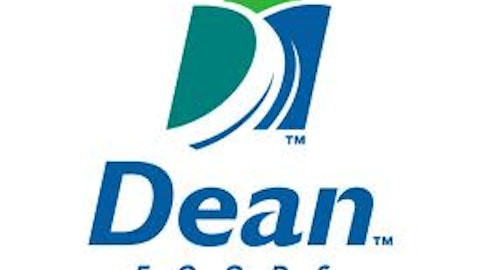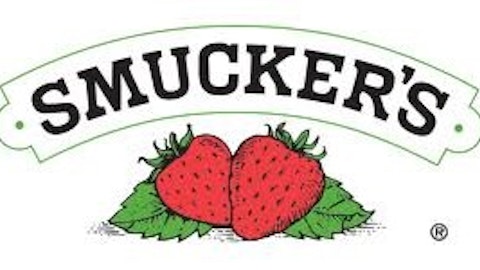As populations grow and as food safety concerns increase, parents are being very selective about the infant baby formulas they buy. Infant formula is manufactured and designed for feeding of babies under 12 months of age.
In China there is a very strong demand for brand-name baby formula after tainted formula from a Chinese manufacturer left 6 babies dead and over 300,000 suffering from adverse effects. The result is strong demand for the products of three companies in particular, making them attractive in the long-run.
A favorite of Steve Mandel
Billionaire Steve Mandel’s Lone Pine Capital is a fan of Mead Johnson Nutrition CO (NYSE:MJN). His firm owns just over 7 million shares worth $555 million. Mead Johnson Nutrition CO (NYSE:MJN) used to be part of Bristol Myers Squibb Co. (NYSE:BMY) but was spun-off in 2009. The company’s flagship product is Enfamil, which commands almost 12% of the worldwide market for infant formula. Mead Johnson Nutrition CO (NYSE:MJN) has approximately 70 different pediatric nutrition products that are sold in 50 countries across the globe.
What I like about Mead Johnson Nutrition CO (NYSE:MJN) is that the company has a strong position in the infant formula market. The company has developed products across the board for any and all infant formula needs. For instance, if a baby is born premature or has a low birth weight, Mead Johnson has an infant formula to target that issue. By having such a broad product line, Mead Johnson is able to generate tremendous brand loyalty.
Two items concern me about Mead Johnson Nutrition CO (NYSE:MJN). For one, a new regulation went into effect on March 1 limiting the exports of infant formula from Hong Kong into China. Sales growth in the first quarter for Latin America and Asia came in at 7% compared to only 1% growth in North America and Europe. Those export limitations will likely affect next quarter’s numbers. Second, any slowdown in revenues will hit the stock considering that the current P/E of 27 is quite lofty. Investors need to keep in mind that the stock is priced for continued growth.
A more diversified play
Abbott Laboratories (NYSE:ABT) is the number one pediatric nutrition company in the United States. The company also makes formulas for adults with an emphasis on healthy living and therapeutic nutrition. In January of this year Abbott Laboratories (NYSE:ABT) spun-off its pharmaceutical business into a new company called AbbVie Inc (NYSE:ABBV). The primary driver for growth now at Abbott Laboratories (NYSE:ABT) is its nutritional business.
What I like about Abbott Laboratories (NYSE:ABT) is that CEO Miles White has positioned the company to capitalize on the growth in Asia. He has spent hundreds of millions of dollars on new manufacturing and research plants in the region. In the first quarter, emerging market sales were 40% of Abbott Laboratories (NYSE:ABT)’s business. The company forecasts emerging markets to make up half of all sales within the next few years.
What concerns me about Abbott Laboratories is that the company may still be too diversified, even after it spun-off most of its pharmaceutical business. The company still produces some pharmaceuticals and is in the medical device and diagnostic testing business. This explains why the stock trades at a Price/Earnings (P/E) multiple of 11. It’s a value play because of all the other businesses. The fast-growing nutritional business is the driver for growth, but is being held back by the other more mature businesses.



